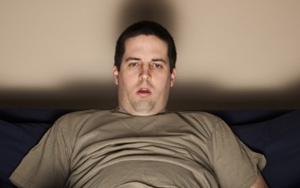Mar 6: The spread of the new coronavirus is shining the spotlight on a little-discussed gender split: men wash their hands after using the bathroom less than women, years of research and on-the-ground observations show.
Health officials around the world advise that deliberate, regular handwashing is one of the best weapons against the virus which causes a flu-like respiratory illness that can kill and has spread to around 80 countries.
The Centers for Disease Control and Prevention's online fact sheet "Handwashing: A corporate activity," cites a 2009 study that finds "only 31% of men and 65% of women washed their hands" after using a public restroom.
Social media comments about men's handwashing lapses forced an august British institution to caution visitors about bathroom behaviour this week.
After author Sathnam Sanghera complained on Twitter about "grown," "educated" men in the British Library toilets not washing their hands, the library responded, putting up additional signs reminding patrons to wash their hands in men's and women's bathrooms.
Thanks to "visitor feedback," a spokesman told Reuters, "we have increased further the number of posters in public toilets so that visitors are reminded of the importance of good hygiene at exactly the point where they can wash their hands."
Men and women approach handwashing after using the restroom differently, according to multiple surveys and field studies.
"Women wash their hands significantly more often, use soap more often, and wash their hands somewhat longer than men," according to a 2013 Michigan State University field study conducted by research assistants who observed nearly 4,000 people in restrooms around East Lansing, Michigan.
The study found 14.6% of men did not wash their hands at all after using the bathroom and 35.1% wet their hands but did not use soap, compared to 7.1% and 15.1% of women, respectively.
"If you stand in the men's bathroom at work, and watch men leave, they mostly don't wash their hands if they used the urinal," said one New York City public relations executive, who did not want to be identified for fear of alienating his colleagues.
Since the virus's spread, he's seen an uptick in men's handwashing at work, he noted. "I, for the record, do wash my hands all the time," he added.
Female medical staff in critical care units "washed their hands significantly more often than did their male counterparts after patient contact," a 2001 study published in the American Journal of Infection Control found.
Middle-aged women with some college education had the highest level of knowledge about hand hygiene, a survey published in 2019 by BMC Public Health, an open access public health journal, found.
Early information about coronavirus infection in China shows that men may be more susceptible to the disease. Just over 58% of the more than 1,000 COVID-19 patients reported in China through Jan. 29, 2020, were male, research published in the New England Journal of Medicine shows.
Researchers have not linked the difference to hand hygiene.






Comments
Add new comment